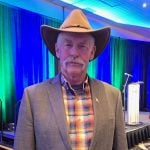SASKATOON – Even as most provinces are getting ready to sign onto a new national safety net agreement, Ottawa is signaling that more negotiations may be in store to lure Quebec into the fold.
Changes suggested by Quebec as the price of its signature would give individual provinces at least the appearance of having more power to set the terms of their own programs.
They would:
- Allow Quebec to amend its programs in direct negotiation with Ottawa, scrapping the current requirement that changes in national standards be approved by seven provinces with at least half the population.
- Scrap Quebec’s need to be part of a national safety net advisory committee, allowing the province to deal only with Ottawa.
- Remove from the national framework proposal the clause which specifically refers to Ottawa’s right to run a national whole-farm program in the province even if the provincial government decides to opt out of paying its share.
Read Also

Chinese, Indian tariffs take toll on pea prices
The disruption of pea exports from Canada’s largest customers will likely result in slow pea exports for the remainder of the crop year.
“They are not challenging our constitutional power to do that,” Agriculture Canada official Tom Richardson said. “But in Quebec, they would rather not sign a document having that clause because it would force them to agree to the idea that Ottawa could run a program in Quebec without their consent.”
Richardson, head of the department’s farm income policy division, said Goodale has not committed himself to accepting any of the Quebec points.
Consider concerns
However, in a recent letter to Quebec agriculture minister Guy Julien, he promised to have his bureaucrats try to figure out ways to accommodate Quebec’s concerns.
And if Quebec gets it, everyone gets it.
“As this effort goes forward, for the sake of equity and transparency, the other provinces will also have to be engaged in the search for, and examination of, such possible alternatives,” Goodale wrote.
Meanwhile, Richardson said as many as eight provinces are ready to sign agreements with Ottawa based on the national framework that defines the national safety net as a combination of crop insurance, a whole-farm Net Income Stabilization Account-type program and provincial “companion programs.”
Because of Alberta’s objections, the provinces have a right to opt out of the national whole-farm programs if they wish. For the moment, Ottawa also states in writing its constitutional ability to “go it alone,” as Goodale has always defined his last option.
And the provinces have been given more latitude in designing their companion programs than some farm leaders originally imagined.
Complaints from cattle producers in some provinces that Alberta’s Farm Income Disaster Program confers an unfair advantage on Alberta producers have drawn a hands-off answer from Ottawa.
Trade rules met
If the provincial program meets international trade rules, then it is allowable, said Richardson.
“Maybe they don’t like the trade laws.”
Jack Wilkinson, president of the Canadian Federation of Agriculture, has complained that the unilateral negotiations between Ottawa and the provinces have watered down national standards.
“I just think we are losing track of the vision we had.”














